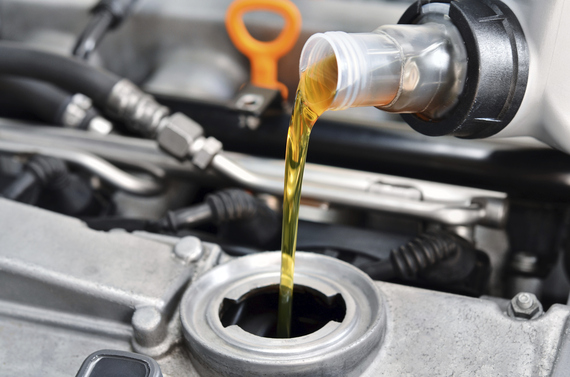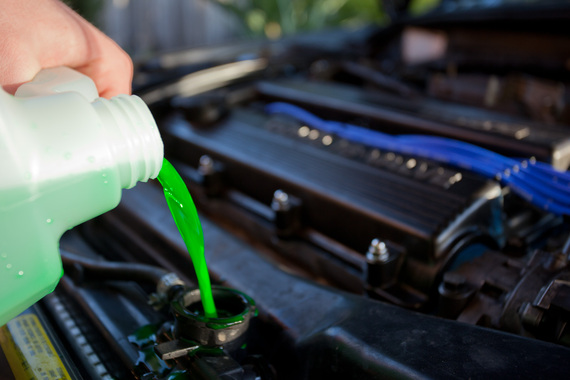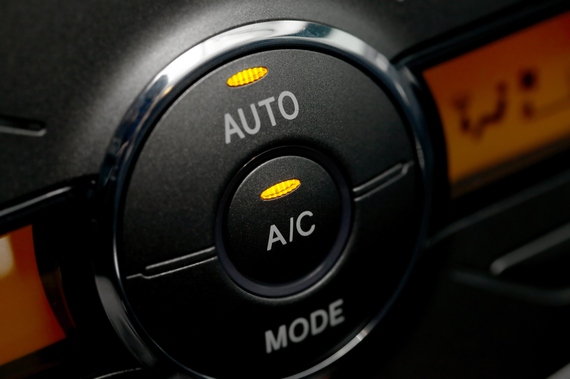Summer weather means t-shirts, BBQs, and best of all - road trips! There are so many great road trips to take this summer, but before you gas up and get driving, you need to be sure your car is in top shape. Just like winter weather, extremely warm temperatures also take a large toll on your vehicle's inner workings.
A lot of the maintenance necessary for summer can be done on your own, which is not only more fun, but it also saves you a lot of money. I spoke with my colleague at CARiD, Richard Reina, an auto expert and enthusiast for more than 30 years, and he provided these simple tips for ensuring your car is ready for the road this summer.
Check your oil. Higher temperatures require higher oil weight/viscosity. Most new cars run fine year-round on the same viscosity oil, but if you're driving an older car that's racked up some significant mileage, it might be helpful to upgrade to a heavier oil to compensate for internal engine wear. However, before making the switch, do your research and make sure your car's make/model will fare well with heavier/thicker oil in the summer.
Check your battery date. Most worry about their battery dying under the impact of cold weather, but what they don't realize is that car batteries are more likely to die in the heat of the summer. If your battery is over three years old, get it tested, or it might be a good idea to get a new unit just as a preventative measure to avoid getting stuck in the unbearable heat.
Top off fluids. Your radiator's antifreeze does not need replacing every year, but some mechanics may suggest it. The mechanic should first test the fluid using a coolant hydrometer. You can check the coolant level yourself (easy to do at the see-through overflow bottle). If you need to top off, be sure to use a 50/50 mixture for best boil-over protection. Adding too much? Be sure to check for leaks (look for staining around hoses). While you're under the hood, top off the washer solvent.
Change your air filters. Riding around with dirty filters prevents fresh air from getting to your engine and your interior, which has a lasting effect on your engine's well-being, along with your fuel economy and your sinuses. Engine air filters are super easy to replace yourself. Consider the washable and reusable ones for better filtration and long-term savings. Don't forget the cabin air filter, which keeps outside smells and pollens out of your heating and A/C systems.
Consider summer tires. Summer can be just as taxing on tires as winter, as heat and sunlight break down the rubber more quickly. All-season tires are designed to handle many different conditions, but because it's a one-size-fits-all there is some compromising. To maximize your year-round driving enjoyment, consider investing in wider wheels and summer tires for warmer months, and having winter tires on skinnier stock rims for colder weather.
Check your AC. Mechanics will try to convince you that you need a full flush and leak-down test every summer to make sure AC is working properly, but your AC is likely fine as long as it's blowing cold air. If it's not, and you're driving an older car, check to see if your heater control is stuck in the "ON" position, as you may only need a new heater valve. Some cars need nothing more than a top off of AC refrigerant once a year. If the top off doesn't fix it, ask for a test using pressure gauges, which will diagnose the real problem and avoid unnecessary replacement of parts.
Quick inspection. At least twice a year (just before summer and just before winter), be proactive and check fluid levels, battery terminal connections, belts, hoses, wipers, brakes, tires and lighting to catch small issues before they become big issues.
Following these preventative measures in the weeks leading up to summer will keep your car in good condition all season long and let you take full advantage of all your summer travels!


